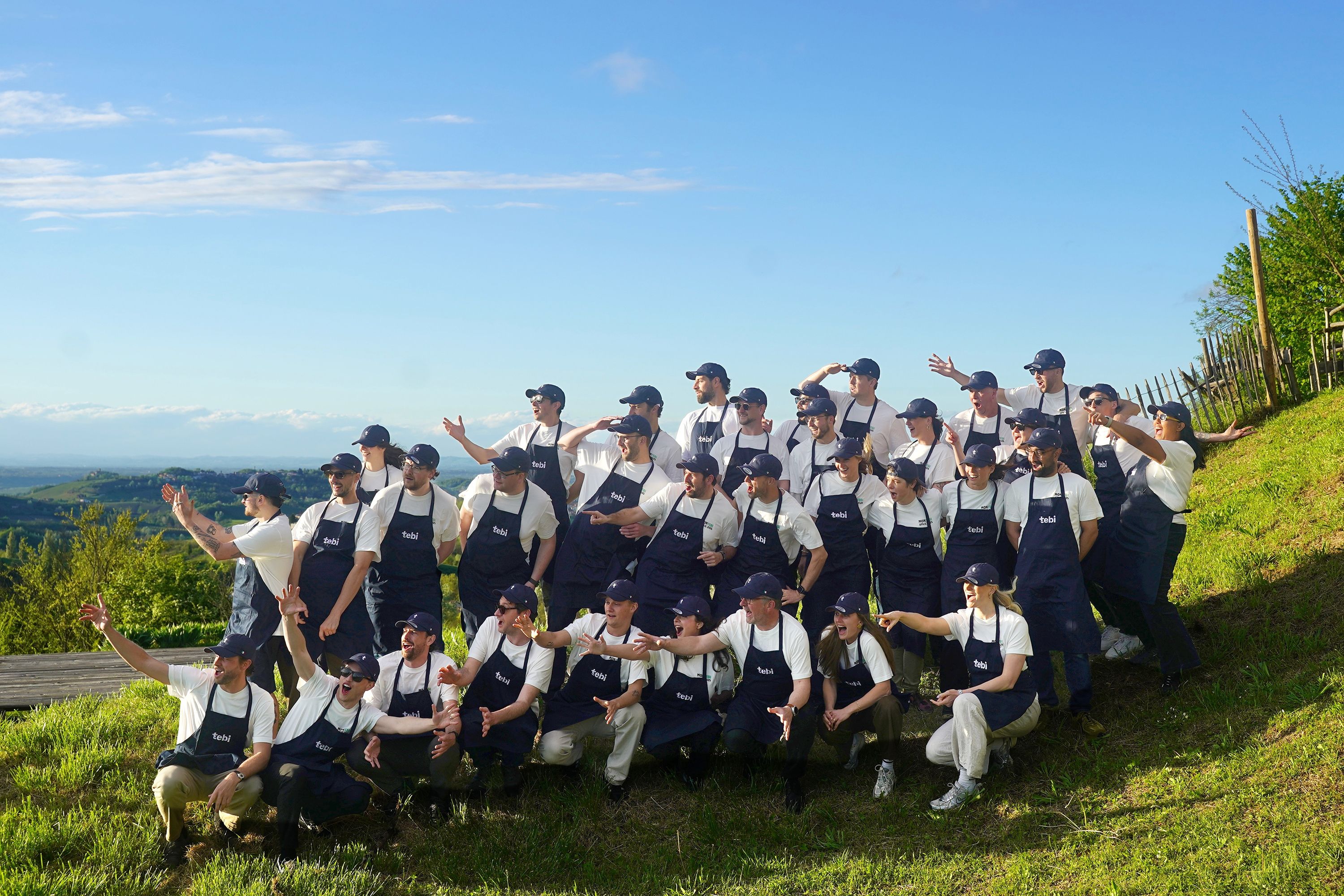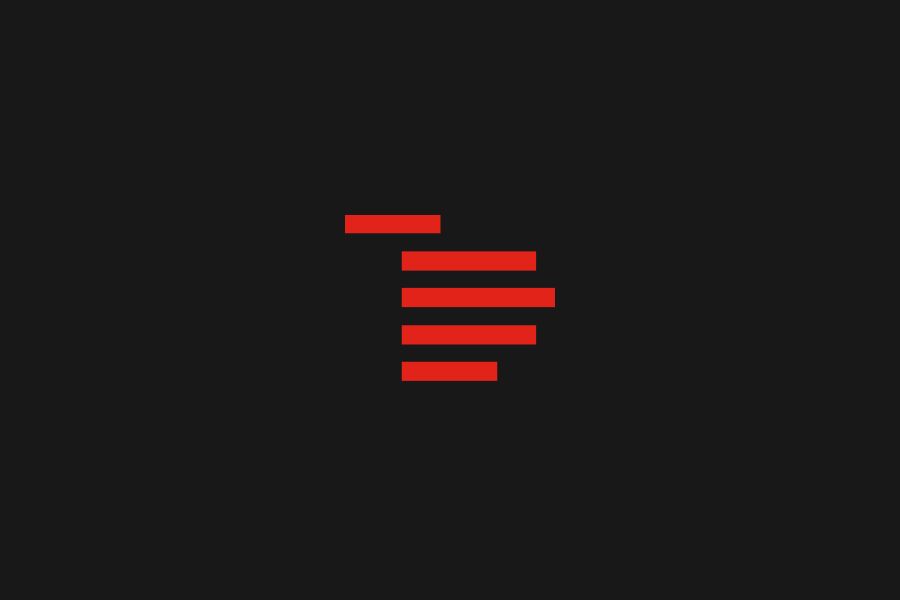Index Creator Summit: The Creator Perspective
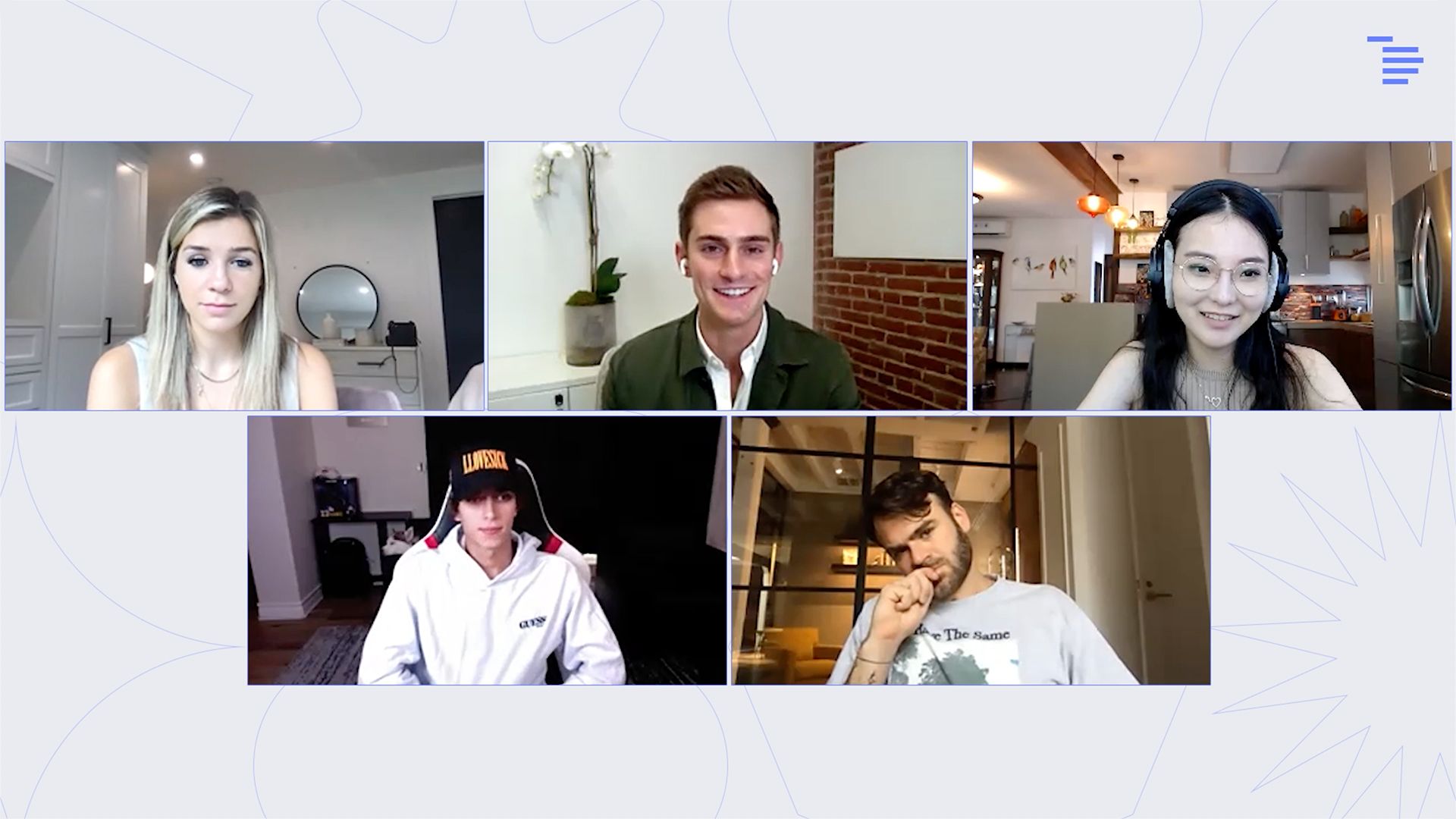
From the way we produce and consume culture, to how we live and work, a fresh generation of businesses is reimagining what it means to ‘create’ in today’s digital economy. We hosted the Index Creator Summit 2021 to unpack the creator phenomenon and how it cuts across social, gaming, media, crypto and commerce.
Rex Woodbury, Principal at Index speaks with creators across platforms to understand their perspectives and businesses. In this discussion, he brings together: The Chainsmokers’ Alex Pall, TikTok Creator, Josh Richards, YouTuber, Shelby Church and Twitch Streamer, Youna aka Codemiko.
How can you ‘make it’ as a creator? In this conversation, hear from some of the pioneering artists in today’s digital economy about how they built up their audience from scratch, the roadblocks they encountered along the way, and the strategies they used to overcome them.
Principal at Index Ventures Rex Woodbury begins by asking about Gen Z’s shifting expectations about work and why life as a creator appeals to them. Josh Richards, a creator and entrepreneur who’s amassed 24 million followers on TikTok, talks about the role of the pandemic and the rejection of the ‘9-to-5’ desk job. Youna (otherwise known by her ‘virtual avatar’ name, CodeMiko) moves on to ‘Vtubing’, self-expression and the relationship between monetisation and community engagement, before Shelby Church discusses why it’s easier than ever before to make money on YouTube. The conversation progresses to how creators can build a massive audience on one platform and then re-direct it to another – something that both Josh and Alex Pall, the entrepreneur and member of the DJ duo The Chainsmokers, have considerable experience in. Finally the group considers the tailwinds that are reorienting artists towards maintaining greater control and ownership over their creativity, and they discuss the new tools and businesses yet to be built that will help reduce the pain-points for the next generation of creators.
Prefer audio? Listen to the Creator Summit on Spotify, Apple Podcast or right below.
Rex Woodbury:
At Index, we've been investing in the creator economy for a long time and we often interact with entrepreneurs and companies, but less often with the creators who are the lifeblood of this economy. I'm really excited for this conversation.
Josh, you're one of the biggest TikTok creators on the planet with 25 million followers. In many ways, you embody the Gen Z creator and entrepreneur.
Shelby, I've been watching your videos for years now, and you've been one of the leading voices on the business of being a YouTuber.
Youna, you're one of the most innovative creators in the world. CodeMiko is fascinating and you're really pushing the boundaries of what it means to have a digital identity online.
Alex, The Chainsmokers music was literally the soundtrack to my college years, but you've also become such a respected investor. We've been lucky to invest alongside you at Index.
You all know better than anyone how this new economy is evolving. Josh, I want to start with you. Why do you think a life as a creator appeals to Gen Z?
Josh Richards:
I think a big part of the boom was definitely this past pandemic. People staying at home needed to have their creative talents have a new outlet. People were searching for where to go. They couldn't go to the musicals. They couldn't go to the theatre. Now with TikTok, they've been able to show off their arts and talents, music, all the way down to creating funny videos. As far as Gen Z, they’re not doing the conventional 9:00 to 5:00 that we've seen our parents do because Gen Z don't love to ask for permission. They want their own thing. They don't want to have a boss overlooking them. They want to invest in themselves, invest with their own money.
Rex Woodbury:
A related part I think is self-expression, which I've heard you talk about Josh. Youna, when I think self-expression, I think of you as a creator. CodeMiko is a digital persona that you created and VTubing often lets creators express themselves in very new ways. 'm curious to hear directly from you, what is Vtubing to you?
Youna:
VTubing to me is a great way to express yourself in ways that can't really be done in real life. With VTubing because it's in 3D and VR space, you can really be whoever you want to be. You have a lot of creativity in creating your avatar. Also, going beyond that to your environment. If you are a developer like myself, you can create games with your community that you can have in that 3D space. VTubing to me is this ultimate self-expression where you can really take your imagination anywhere.
I have a tech background and my job before streaming was research and development for live animation, that essentially is what we know today as Vtubing. For me, the tech I was building was fitted for something like a live streaming platform like Twitch.
That's why when my team got laid off, I decided to start streaming on Twitch and create my VTuber CodeMiko. I’ve also always been a huge fan of things like Ready Player One and The Matrix. I've always had a love for this kind of second life, creating avatars that represent yourself in a different way.
I stream both as myself and as CodeMiko and when I stream as CodeMiko I'm more free to be a different side of myself.
Rex Woodbury:
Was it tough to get going in the early days or at the beginning of the pandemic?
Youna:
Twitch as a platform is wonderful, but it's hard to get discovered on Twitch. When I first started, I was able to get up to 100 viewers in my first month. I wasn't making enough to pay my rent or the debt that I put myself into to create the project. Then, a couple months in, I created these monetization tools that allowed my viewers to create content and engage with me and like an arcade type fashion. That helped my project to stay afloat. It also helped my viewership. The whole process took eight months to build.
Rex Woodbury:
Shelby, I'm curious to get your view. When I think of creator monetization and making a living, as a YouTuber, you're very candid about how challenging it can be, especially in the early days.
One blog post I read of yours said that you got a video up to a few million views and I think only made $1,000 dollars or so. You've seen over the years the challenges of monetization for creators. What's your view on the pain points that still exist?
Shelby Church:
I think it's gotten a lot easier over the years on YouTube specifically. There's just a lot more money being put into it, whether it's companies buying pre-roll ads, or more brand deal offers. The pandemic played into that because companies weren't shooting commercials as much.They found that they can get more for their money on YouTube.
It's easier than ever to make money on YouTube, especially with the ad break that you can add a second ad if your video's over eight minutes long. When they added that, it just doubled my YouTube ad revenue.
I think with YouTube, it's easier than ever. The only platform that I don't see as much is maybe Instagram. They don't have a creator fund. If you're posting reels on there, you're only going to make money if you're doing brand deals.
Rex Woodbury:
One interesting trend that I followed is creators building a massive audience in one area and then translating that into different platforms. Alex, I’m curious, you built this presence on Spotify and on the stage, but then more recently you've expanded into investing. What's that transition been like? Do you think more creators might follow your footsteps there?
Alex Pall:
I think creators in general have a super entrepreneurial sense to them. That's just ingrained in us and that's why we go off and try to do our own thing, and figure out how to be our own bosses. For Drew and myself, I think we always knew we were going to try to use our platform in music to anch out into other areas that interested us. We have a tequila company, we have a TV and production company. We have a real estate development business. The learning curve of what that means in order to be a great investor took time. In the beginning it was very passive, but then as we dug in we understood the impact and the role we could have for these companies. Also, just how inspiring it is to work with these founders.
Straight up, I think most musicians are lazy and egotistical, and are not motivated. I find founders of the tech world to be the complete opposite. We really enjoy working in the space and being inspired by them.
Rex Woodbury:
It's interesting you say that too, because I feel like the four of you are some of the hardest working creators that I've seen. Josh, I can't even count the number of different businesses you have now.
In the old days we might have seen a creator rent their distribution or their feed to a brand, maybe Red Bull or Monster or Rockstar, but you chose to launch your own energy drink, Ani Energy. What was going through your head?
Josh Richards:
When it came to Ani, me and Bryce Hall, fellow creator, and then a bunch of the people over at TalentX Entertainment along with Evan Burns came together to do this drink. What we were doing was really listening to the fans. It's not always about jumping in and promoting a product. Sometimes you want to let your own ideas take flight. With Ani, we were able to talk to the fans throughout the whole project, throughout the mission, and make them feel like they were a part of it.
Recently, we launched in multiple Walmarts and had amazing feedback on the product. For the future, I really hope creator businesses are something that we're able to pioneer with people like those on this call. Inn today's creator world, equity is so important. It's important to own things over just always leasing your videos.
Rex Woodbury:
Youna, you're also a new entrepreneur. I don't know much about Mikoverse other than that you've started a way to let other people be VTubers and do what you've done with CodeMiko, but curious to hear about your vision from Mikoverse and what you're building too?
Youna:
CodeMiko what makes her special is that she has what I call very high fidelity mocap. That she's very expressive with her face. She has full body capture. Not only that, she has a tool where she directly engages with her viewers.
What I want to do is give those same tools to other creators.I want them to have more creative freedom to create whatever avatars they want and engage with their audience in ways where the community grows stronger and they help build content with the streamer. Also, to just have a place to stay and hang out.
I'm creating the app as a multiplayer universe where the viewers can actually come in and hang out with their streamers. When the streamers go offline, they still have a place to stay and play games with each other. That's essentially what Mikoverse is.
We're creating the next technology for VTubers and also unlocking new ways to engage with their fans, and also monetization.
Rex Woodbury:
It's fascinating. One thing that a few of you have touched on is just this mentality shift of being an equity owner, being an investor, being an entrepreneur, in addition to being an artist and creator. Question for all of you is just what do you think is driving that? It does feel like this seismic shift in what it means to work rather than renting your time to an institution or corporation for 40 or 50 years. You're all exposed to probably dozens or hundreds of people who are also part of this economy. What do you think are the tailwinds that are reorienting people's view of a career?
Youna:
I've been in the Tubing space for five years. Before Tubing I was big on Twitch because I was in the tech sector. The technology came to a point where it was more and more accessible for others. It happened to line up with the pandemic.
Alex Pall:
That's a great point. I think in general, you're seeing individuals in different fields have an opportunity publicly, like on Instagram and TikTok and YouTube, and build careers and go out and do that. Whereas before like you said, you had to work for the institutions.
I think all this new tech is just empowering people to have their own individual voices and personalities. You're seeing the fans and communities that they build around them support them. All these different companies that we're talking about and investing in respectively are enabling people to create careers around these things, and foster better communities.
Back in the day, pre-Facebook and Myspace, there was no option to do that. You had to go work at a news agency or work your way up to get on camera somewhere. Now, all you need is your iPhone. I think that's creating a lot of opportunity.
I think it's great to see people that otherwise, maybe this would've been a hobby, but now their personality becomes their business. I think that's great.
Rex Woodbury:
Shelby, I'm curious your view given you've made videos for the better part of 10 years now. You've probably gotten used to a lot of the ups and downs of being a creator, but what are the remaining biggest pain points that you see in this new form of work?
Shelby Church:
I think one that myself and a lot of other YouTubers always find difficult is to find good editors because that's something that takes up most of our time as a YouTuber, if you're editing your own videos. A lot of us are very protective of our style. It can be so much footage to send over, it could take an entire day just to send that footage. Then for the person to edit it, send a rough cut back, it just gets really time consuming. That's one thing is finding good editors that can really match the style of the YouTuber.
Then also, I think one thing that's difficult is just so many new platforms always being out there, just finding ways to repurpose and cut that footage.
Adding in TikTok, Instagram Reels, Facebook, everything that gets difficult, because you don't want to spread yourself too thin and be making just okay videos I find.
Rex Woodbury:
Alex, you're an investor, Josh, you're an investor. Shelby, you angel-invested alongside Index, you're an entrepreneur. What are your views of what companies have yet to be created that need to be built for this space? What are the gaps in the market?
Alex Pall:
I think right now we're seeing a shift across all different industries where you had these big players, in my case, the record labels that controlled a big portion of your royalties and obviously, working in tandem with Spotify and Apple Music. Obviously there was a time when that was great. They were handling actual compact disc and road shows, and all these mechanical royalties and things.
Now it's just a function of email. I think we're going to see through DeFi and blockchain and all the things happening in the crypto space, hopefully a shift back to the creator. I think you see this with Patreon and sites like Cameo, where the power is going from Facebook and from Google, and back to the creator.
I think the royalty splits are just bullshit across the board, no matter whether you're on YouTube or Twitch or TikTok, or whatever. They're generating billions and billions of dollars off the back of our creativity and our art. I know there are platforms always out there talking about how they want to empower the bands' community more and make more money for artists. 97% of people on Spotify don't even make $10,000 off their songs. I think on some level, we're not going to save everybody, but I think that you can find a happy medium where we hope that these platforms and the next YouTube and the next Facebook and the next TikTok, it's not owned by one person, it's owned by everybody.
Rex Woodbury:
Josh, what do you most want to see out there that entrepreneurs could be building?
Josh Richards:
I think when it comes to specifically Gen Z, building not just the platforms for things like DeFi to trade, but actually getting more into the educational side of it. I think for example, Wonderfy actually teaching the youth on. Even my 12-year-old, younger brother comes up to me and will talk to me about cryptocurrency and what it is, but they aren't getting the full education on it. Some of them are going and investing into areas that they shouldn't be in yet. With platforms like Wonderfy or other platforms out there, they can finally start to really learn and harness in on that skill and that young creativity they have as kids. I think that's the most important direction.
Rex Woodbury:
Something both of you are touching on is this idea of removing gatekeepers. Right now, a lot of the legacy infrastructure of media, of creativity, of art really for the last few centuries has been monopolised by these brokers and intermediaries. Music's a great example with record labels. Now, Facebook, YouTube, TikTok, Twitch, a lot of these platforms are also the new intermediaries that are taking a lot of the lion's share value. I'm curious for all of you, maybe crypto is the answer, but what are the other answers to not being so reliant on platforms and for creators to have a better ownership of their art and their creativity, and their community?
Shelby Church:
I think a lot of people find that it's old school, but they'll have an email list so that they just have something that is actually going to reach their audience if they're actually checking their email, which I think a lot of people do. With YouTube, you can't always rely on the algorithm. Sometimes it's not going to send it to everyone.
I see people having Patreon or something like that, where they can just rely on it a little bit more. I could see people even making their own platforms where it's not on Patreon, but their own website.
Alex Pall:
I think it was always used a lot in the literary community, like Substack writers leaving big publications and joining creating a newsletter and getting paid for it. I think it's just the belief in yourself. These writers are making infinitely more money now doing less work and writing about things that they are interested in.
Youna:
I think that you have a good point about how Twitch and YouTube takes a huge cut from the creators. I think both platforms are amazing and they're great, but I think we need more platforms that give better tools for monetization to the creators. That's why I started Mikoverse because I built tools for myself to help monetize the small audience I had.
There's so many fun ways you can do that. Having a platform that specifically is there to build tools for the creators is something that I think would help monetize.
Rex Woodbury:
What do you think, Youna, that those tools will be? I am nowhere near as creative or talented as anyone on this call, but I've very briefly made money on Instagram back in the day with lots of cringe-worthy sponsored posts. I think in a time when you had to rely a lot on brand deals and that's still true for a lot of creators.
Maybe the answer is tipping or ticketing or micro payments and maybe creator currencies or tokens, but curious, maybe starting with you, Youna, what are the tools you built for your audience, but beyond advertising and AdShare, what are the ways that creators can really earn income from their communities?
Youna:
This is my experience as a VTuber. I think what I'm talking about really does only apply for Twitter, VTubing and livestream. For me, I created tools where I made Miko into an arcade game where if someone throws a certain number of bits, she'll fart or she'll explode, or there'll be stuff that happens in her world.
There's other miniature games that I've created where we had a pizza topping contest where we had a menu and the first eight pizza toppings we may get onto the pizza, and that created a whole war inside my community of what pizza topping they needed to be on top. In order to vote, you had to spend a dollar to vote.
A dollar to one person isn't much, but it starts adding up and it starts generating a good revenue for the creator. Fun things like that and all those things that have been built for Miko can be replicated for other things. That pizza topping thing doesn't have to be for pizza toppings. It could be for any voting type system.
Rex Woodbury:
Well, in our last few minutes, what's one piece of advice that you would give someone who maybe is a virgin in creator, but also wants to be more of a formalised business, and to be an entrepreneur. Maybe Shelby, we can start with you. What advice would you give them?
Shelby Church:
I think if someone's just starting out with say YouTube, just to be persistent. I see so many people start for a month or two and then give up. Don’t judge your first videos too harshly. If you go back to any YouTube channel, the first videos are probably cringy and not very good. That's totally normal and just a part of the process. You learn as you go, you don't need to know everything starting out. Especially with YouTube, you don't have to have the best production value ever. People aren't going to YouTube for that. I think just being persistent really is the biggest thing with YouTube and learning along the way how to get better.
Josh Richards:
Of course, it's always a lot more hard work than people think it is. It's always like the grass is greener on the other side. It was three years before I started getting traction on social media. It's putting in that commitment. It's putting in that consistency like Shelby was talking about. I was posting five videos a day on TikTok and going live every night for four hours. It definitely takes a lot of time, but I think even more than that, when you want to move into the business world, it's really important.
This is something I say a lot, but know what you know and know what you don't know. The reason we're able to spread out and do so many companies and be able to be successful in so many as well is because we're bringing in the right people. When we go and build out Ani Energy, it's bringing in people like Evan Burns who has built a drink before/
Rex Woodbury:
That's awesome. Alex, you probably mentor a lot of young artists and creators. What advice do you give them?
Alex Pall:
I don't. Don't ask me anything. Just kidding. I think it's important to find your voice. I think that especially true in music, that's how you stand out, you find what is unique about what you're making, and really focus on that. That was a big part of our early days.
What is our sound? How do we innovate on it and bring it to our fans and cultivate that culture around it. I agree with everything Shelby said, also about not taking it too personally. You’ve got to put stuff out there and learn from those experiences of what worked, what doesn't work, and that you can only get that experience by trying.
You learn a lot by releasing music and seeing how people interact with it. Just don't give up. There's no such thing as an overnight success. You really have to grind.
When you think of an artist that comes out of nowhere, even like Lil Nas X, which right now seems crazy, because he is one of the biggest artists on the planet. Two years ago, no one knew who this guy was. I guarantee you, he's been working on this project for his whole life ready for this moment.
Rex Woodbury:
He's one of the savviest internet people out there too. It's incredible to watch. Youna, I've read about you, wake up early to dev, then you stream late into the night. It seemed like you from the outside have had such a rapid rise, but I know a lot of work went in as well.
For VTubers starting out or Twitch streamers, YouTubers, what advice would you give or even a new creator entrepreneur building their own startup?
Youna:
I think as Alex and Shelby and everyone else has touched on it's really about consistency and also being unique. Especially, with how oversaturated Twitch and YouTube is, you really have to find what is unique about yourself and try to market that in a way where people also see that too.
I think for me to get to the point where I was, I think there was a lot of hard work, but I do think that there was some luck involved because I happened to be into Tubing at the right time.
I really think that the people that can play that long-term game win at the end. Definitely, look at things in the long-term.
Rex Woodbury:
Well last question, Alex, when's the new album coming?
Alex Pall:
It's done. We're mastering it. It's good. It's really good.
Rex Woodbury:
We're ready for it. Thank you all. As someone who again is very, very less creatively inclined and talented, it's great to hear all of you. I really admire your creativity, art and talent. How you're pushing forward this new digital economy and form of work. Thank you for the time
Alex Pall:
Appreciate it, Rex. Thank you.
Youna:
Thank you for having us.
Shelby Church:
Thank you.
Watch the full summit and hear from all 24 speakers who discuss the creator phenomenon.
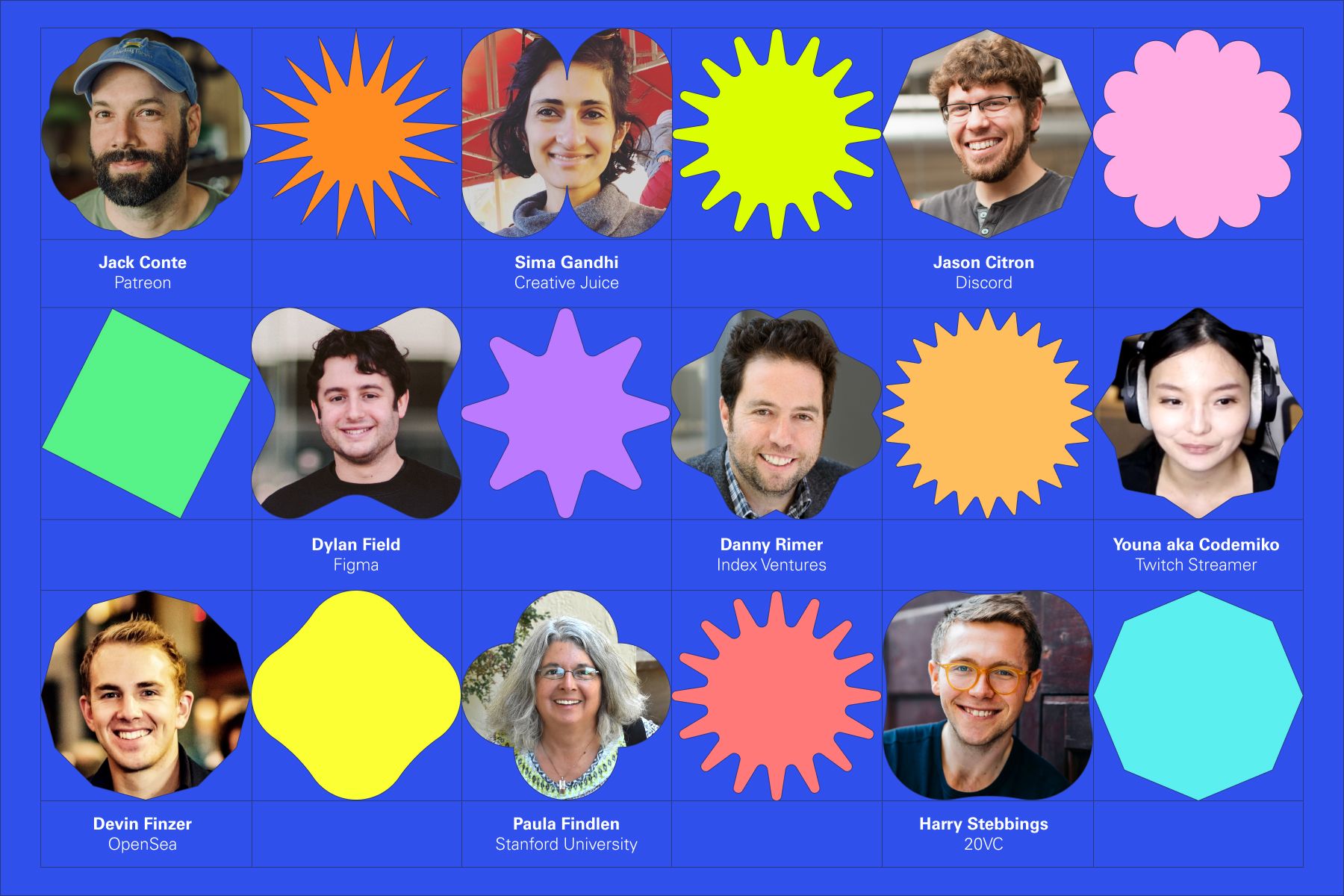
Published — Nov. 3, 2021
-
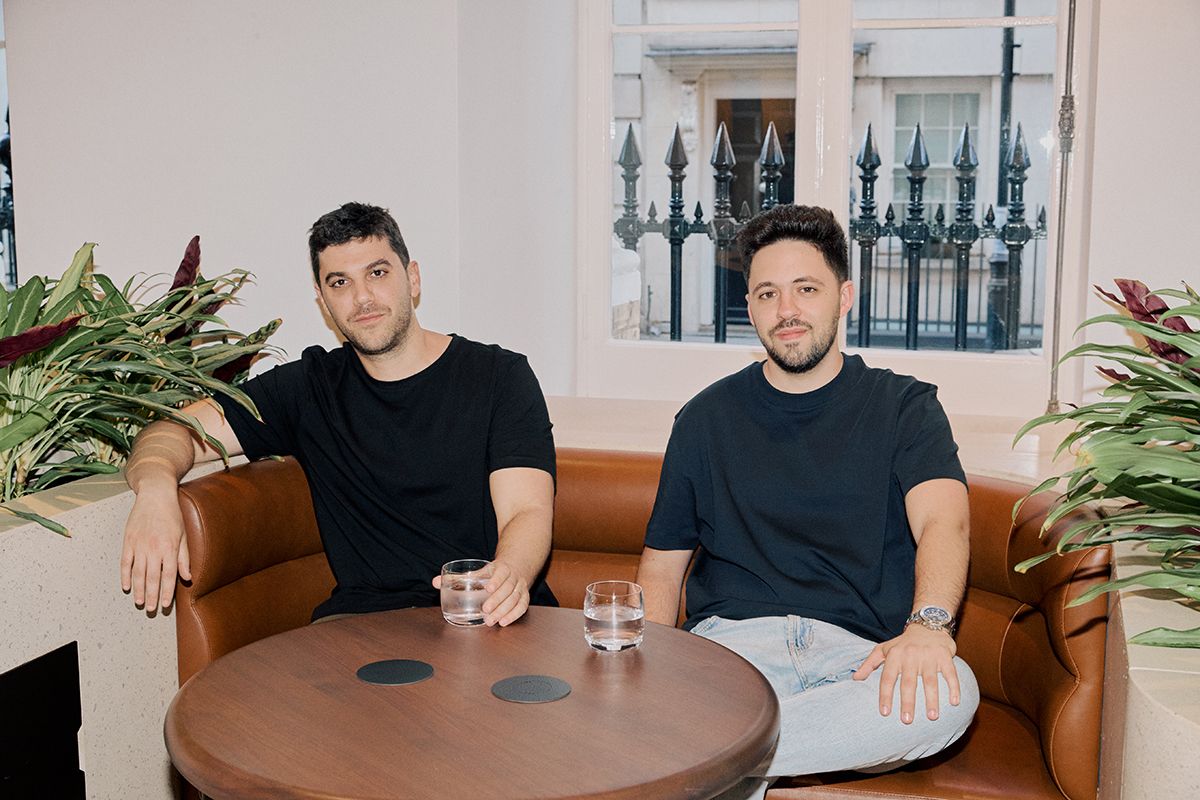
-
